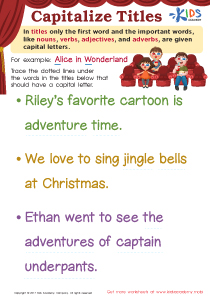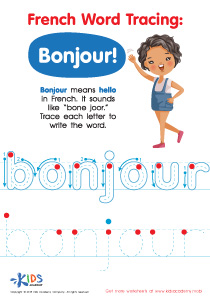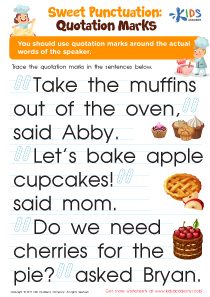Spelling improvement Extra Challenge Writing Worksheets for Ages 3-6
3 filtered results
-
From - To
Introducing our "Spelling Improvement Extra Challenge Writing Worksheets for Ages 3-6," designed to make early literacy fun and engaging! These worksheets provide young learners with the tools they need to enhance their spelling abilities while fostering a love for writing. Each activity is tailored to suit the developmental stage of preschoolers and kindergarteners, featuring colorful illustrations, simple word prompts, and interactive exercises. Our expertly crafted worksheets not only reinforce spelling skills but also promote critical thinking and fine motor development. Perfect for both classroom and home use, our worksheets are an essential resource for nurturing confident, proficient young spellers.
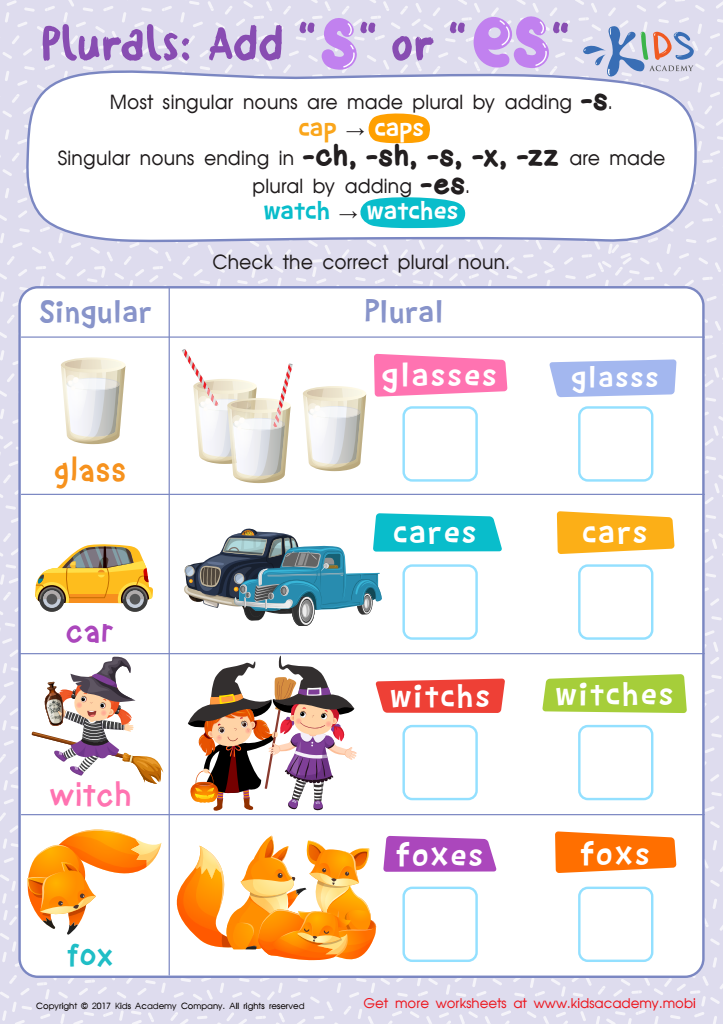

Plurals: "–es" or "–es"? Worksheet
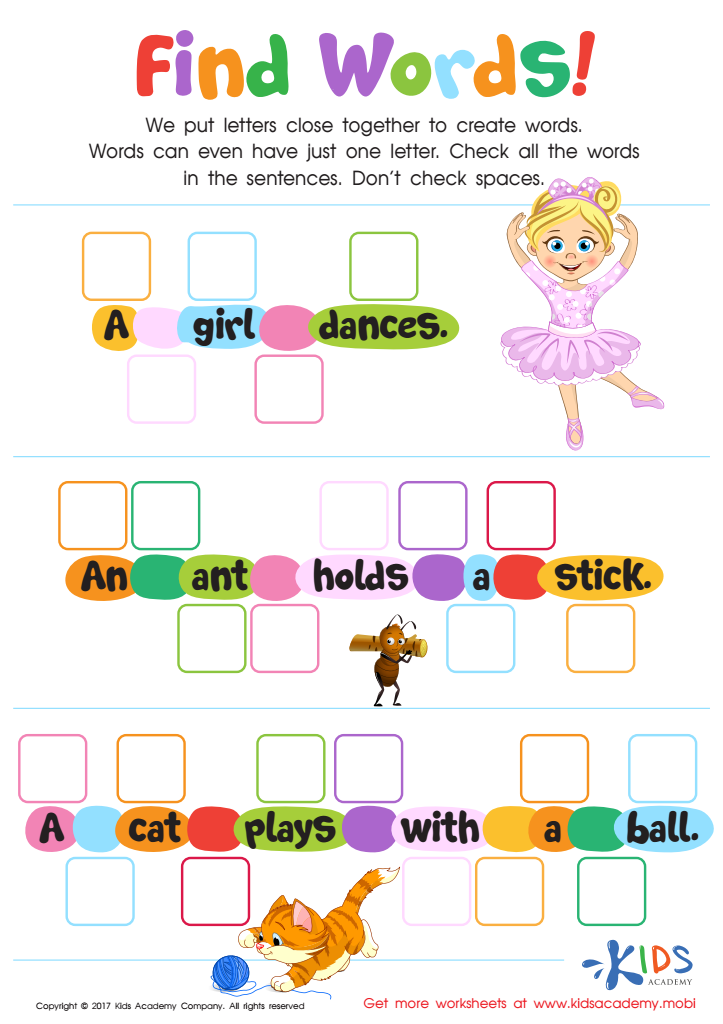

Find Words Worksheet
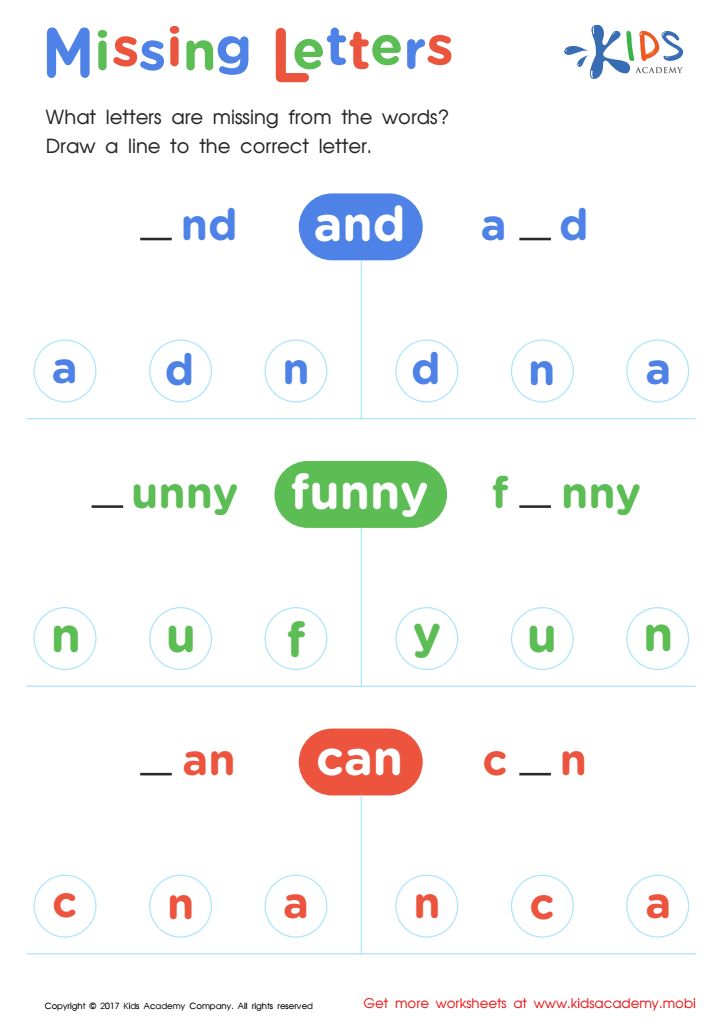

Missing Letters Worksheet
Spelling improvement challenges for young children, ages 3-6, are crucial for early literacy development. At this young age, children's brains are at a formative stage where they are highly receptive to language learning. Integrating spelling challenges at this age will help solidify their understanding of the alphabet, word construction, and pronunciation, laying the foundational blocks of effective communication.
For parents, actively participating in their child’s spelling practice promotes a bonding experience and enables meticulous attention to the child’s language skills—traits often challenging to address in a busy classroom environment. Teachers, on the other hand, can leverage these extra challenges to identify and cater to varying learning paces in the classroom. They can tailor their strategies to ensure each child gains confidence and proficiency at a comfortable speed.
Moreover, spelling exercises expand vocabulary, enhance memory, and foster a love for reading and writing, equipping children with tools for academic success. Improving spelling proficiency at an early stage can mitigate future learning obstacles, creating a smooth trajectory for advanced language studies.
Overall, through structured, engaging spelling improvement challenges, both teachers and parents can ensure that children transition into more complex reading and writing tasks with ease and assurance, establishing a strong foundation for lifelong literacy skills.
 Assign to My Students
Assign to My Students










